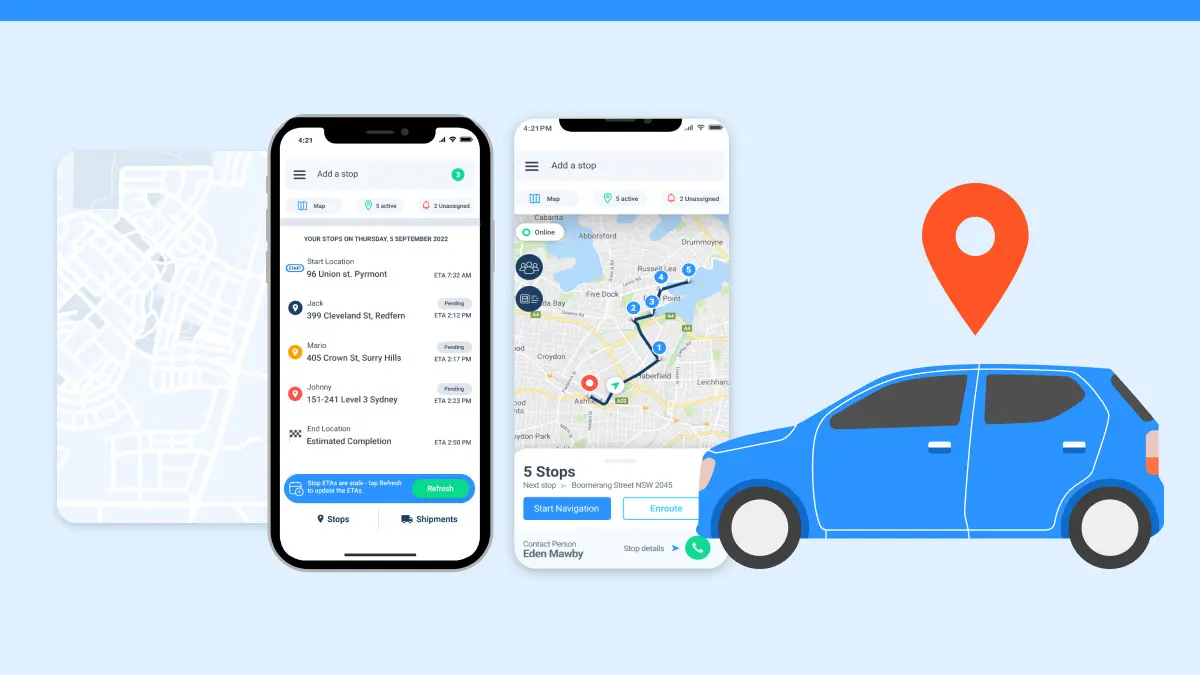Navigating the Future of GPS Monitoring: Developments, Challenges, and Opportunities Ahead
As we stand at the crossroads of societal ramifications and technical advancements, the landscape of general practitioner monitoring is poised for a transformative trip ahead. The development of GPS modern technology has been fast, introducing a brand-new era of real-time monitoring capacities that promise unprecedented levels of accuracy and efficiency. However, with excellent development comes excellent responsibility, as information personal privacy problems loom big and security obstacles in general practitioner tracking raising significant questions about safeguarding sensitive information. Among these obstacles lie hidden possibilities waiting to be discovered, offering a glance right into the untapped potential of a sector at the brink of adjustment.
Evolution of GPS Technology
Established for military functions, GPS innovation has advanced to become an ubiquitous tool in different sectors, consisting of transportation, logistics, agriculture, and personal navigating. Early General practitioner systems were characterized by limited insurance coverage, lower precision, and bulkier equipment demands.
One trick milestone in the evolution of GPS innovation was the advancement of Selective Schedule (SA) in the 1990s, which intentionally weakened the accuracy of private general practitioner signals. The discontinuation of SA in 2000 considerably boosted GPS precision for civilian customers. Subsequent developments, such as the implementation of additional satellite constellations like Galileo and BeiDou, have better boosted GPS coverage and precision, making it an important tool in day-to-day life. As general practitioner innovation proceeds to evolve, we can anticipate more improvements in insurance coverage, accuracy, and efficiency, opening new opportunities for technology and applications across different sectors.
Real-Time Tracking Advancements
Building on the improvements in GPS technology that have changed accuracy and insurance coverage, real-time monitoring has actually arised as a crucial area of innovation with extensive effects across various markets. Real-time tracking advancements allow companies and businesses to monitor employees, possessions, and automobiles instantaneously, supplying beneficial understandings for decision-making processes - gps tracking. By leveraging real-time information, firms can boost operational performance, boost customer care, and make sure the security and protection of their assets
One of the crucial advancements in real-time tracking is the integration of artificial intelligence and device understanding formulas, which make it possible for predictive analytics and anomaly detection. These capacities permit positive maintenance organizing, route optimization, and threat mitigation approaches. The advancement of real-time tracking systems has actually led to the development of mobile applications and adjustable dashboards, equipping users to access essential information anytime, anywhere.
Data Privacy Worries

Information personal privacy worries include numerous elements, consisting of the storage, sharing, and retention of area information. Companies need to execute robust safety procedures to secure GPS monitoring information from cyber dangers and data breaches. Transparent plans concerning information collection methods and the purpose of monitoring are vital to develop count on with consumers and guarantee compliance with information security policies.
Protection Difficulties in GPS Tracking
Addressing information privacy worries in GPS monitoring is intricately connected to minimizing the protection challenges that occur from potential susceptabilities in the innovation. One of the key security difficulties in GPS tracking is the risk of unapproved access to delicate place data - gps tracking. Cyberpunks can intercept general practitioner signals, adjust location details, or also track individuals without their authorization. This not just gets into individual privacy but also poses significant safety threats.
Another safety and security obstacle is the possibility for spoofing or obstructing GPS signals. By relaying incorrect signals or interfering with legitimate ones, harmful actors can trick GPS receivers and adjust location data. This positions dangers not just for private customers yet additionally for army and governmental applications that count on precise positioning details. Carrying out robust encryption, authentication procedures, and signal verification methods are critical steps in attending to these safety and security difficulties in GPS tracking.
Emerging Opportunities in the Sector
The blossoming field of General practitioner tracking technology presents a myriad of encouraging opportunities for sector growth and advancement. One essential possibility lies in the growth of GPS Check Out Your URL tracking applications past conventional markets. GPS tracking can transform patient care by allowing remote surveillance of crucial indicators and guaranteeing prompt medical help.
In addition, the enhancing need for linked tools and IoT remedies offers a ripe chance for GPS monitoring firms to increase their offerings and develop innovative remedies that cater to a more linked world. By capitalizing on these arising chances, General practitioner tracking companies can place themselves for sustained development and success in the dynamic landscape of the sector.
Final Thought
In verdict, the future of GPS tracking is noted by continual development and development in technology. As the industry moves onward, navigating these challenges will certainly be vital to make certain the continued growth and success of General practitioner tracking technology.
With great technology comes excellent duty, as information privacy concerns loom huge and security challenges in General practitioner tracking raising important concerns concerning safeguarding best site delicate information.With the quick spreading of General practitioner tracking innovation in numerous industries, dealing with information privacy issues has actually come to be an important important for both consumers and services alike. The collection of place data via General practitioner tracking raises considerable privacy problems, as it makes it possible for the surveillance of people' actions and motions. Organizations making use of General practitioner tracking should prioritize protecting this data to avoid unauthorized gain access to or misuse that could jeopardize people' privacy civil liberties.
Businesses should execute robust protection actions to protect General practitioner tracking information from cyber hazards and information breaches.
Comments on “Just How GPS Tracking Improves Vehicle Safety And Security and Tracking”